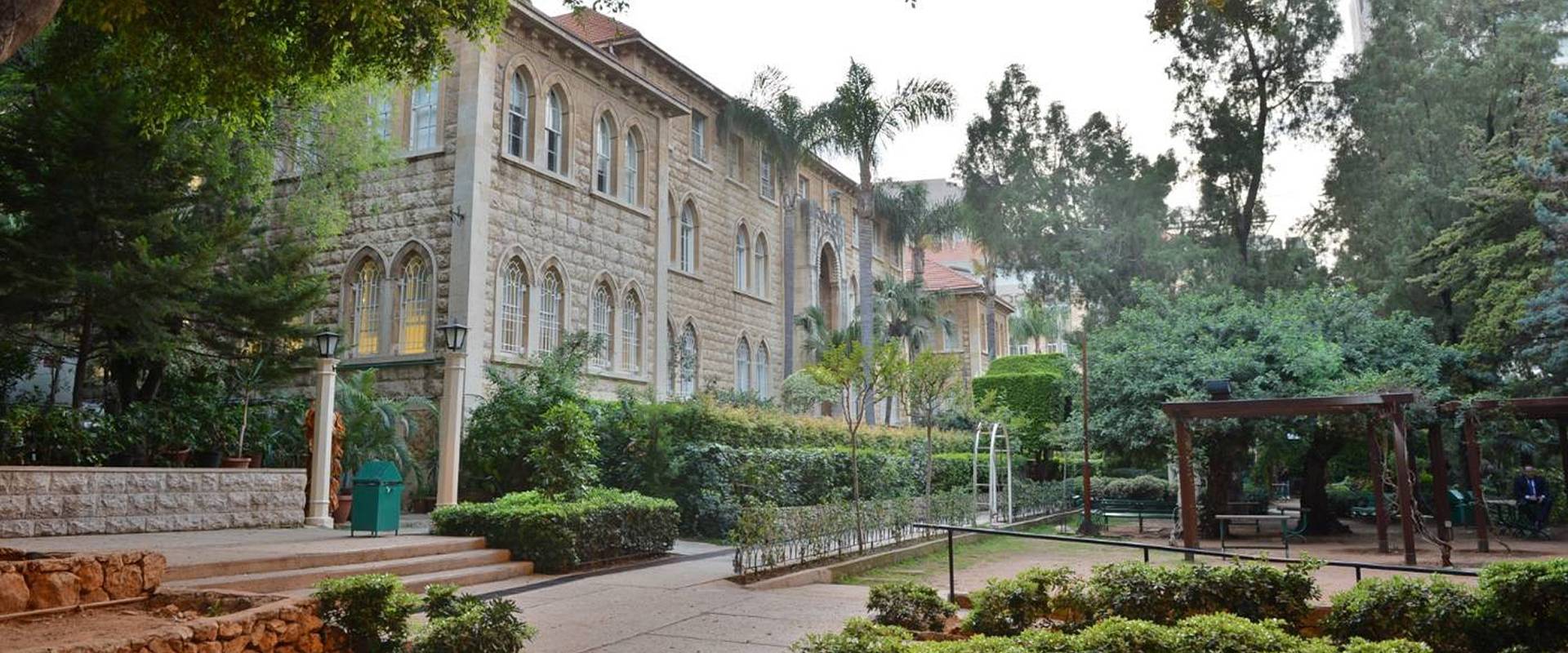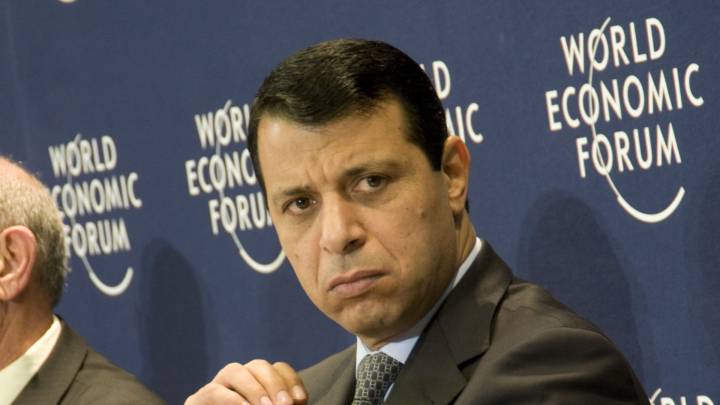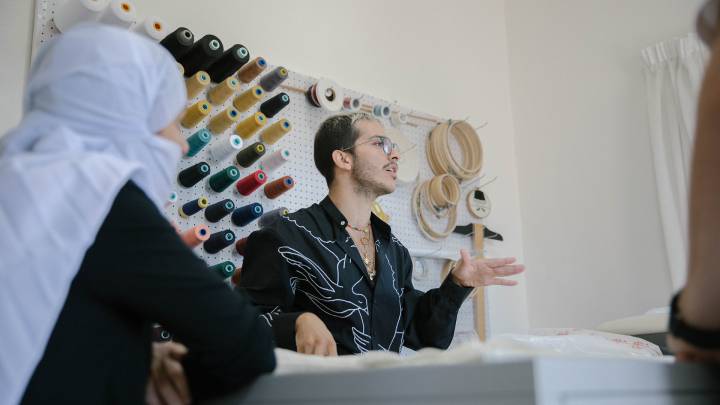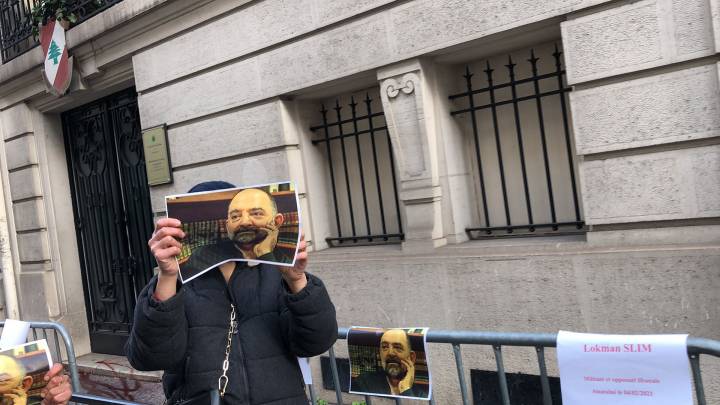Lebanon’s traditionally high tuition fees force more and more students to drop out in times of economic crisis. A new initiative seeks to stem the tide and safeguard the country’s most valuable asset.
In September 2020 Lara Slim, a 25-year-old student in architecture, left Beirut to complete her master’s degree in Brussels. She was not the only one: Following the port explosion, the financial meltdown, and the death rate surge due to the protests and the pandemic, many young Lebanese just wanted a way out, a beam of hope.
But instead of concentrating on her future, the young student immediately faced a new challenge: Although Slim had some savings on the side that would self-sustain her living necessities, she realized quickly that she couldn’t keep up paying her college fees. “The thought of living alone abroad and struggling to transfer college fees because of what is happening on the other side of the world is draining enough, but I had to maintain my emotional and mental well-being, as well to keep a good performance at school“, she says.
Luckily enough, the college administration was understanding of the situation and kept postponing her payment until she was finally able to settle the first payment just recently.
Slim’s case is typical for the challenges many young Lebanese are facing today. In a country, where the economy is hit hard by multiple crises and family savings are melting away under rapid inflation, more and more students seem to be unable to pursue their education and drop either out of college or university. That concerns students abroad, as well as those who stay in Lebanon.
Already before the crisis hit, the educational system in Lebanon was facing an inequality gap: between private and public schools, as well as between those who are privileged and those who cannot afford tuition. The abrupt shift to the digital realm following the Corona pandemic has expanded this divide and forced students to engage in remote learning, while some of them did not have the proper means and tools to pull through.
A UNHCR survey conducted in April 2020 found that out of a sample of 10,000 families in need, only around half own a television at home and almost none have tablets or computers, but only a smartphone. Simultaneously, schools had to increase their tuition fees to meet the current living conditions while some parents lost their jobs and weren’t even able to afford the initial required payment.
When Lara Slim faced her own hardship abroad, she decided to take matters into her own hand. Sitting in her room back in Brussels, trying to untangle a solution for her school’s drawback, she came up with the Khayar, an initiative which name stands for “choice”. Its aim: to provide an equal choice and an equal opportunity for every Lebanese student.
“We didn’t want a temporary solution,” Slim says. “We wanted to create a mindset that directs the Lebanese intellect to the right people by providing them the chance to complete their education while they give back their time to community service hours, internships, jobs, and needed human resources in NGOs and start-ups.”
Once they complete their education, the beneficiaries are supposed to volunteer for an NGO or a similar initiative
To reach that aim, Khayar wants to strengthen the ties of Lebanese students all over the world, but also tap into the diaspora’s willingness to invest in education, innovation, and communication. While founding Khayar, Silm could rely on pre-existing networks. The 2019 protests in Lebanon created some sort of a community of young people craving to help in any way they could. So after months of long-hours zoom calls, a couple of visits to Lebanon and good networking, the initiative was launched.
During the first months, Khayar has been focusing on helping students who have a semester or a year remaining to complete their education. One of the initiative’s most important goals is to provide those students with their university degrees in order for them to move to their professional lives and help the community in return. “We want to break the vicious circle of being dependent,” says Slim. “Instead of growing accustomed to only receiving the means to survive, we want to teach the youth and students in particular to give back to their community, the community they belong to.”
Once they complete their education, the beneficiaries are therefore supposed to volunteer for an NGO or a similar initiative. In its application form, Khayar performs a background check in order to prioritize the people who are in need of a financial support, then they transfer the fees directly to the university. Although they are still struggling to find partners, Slim’s initiative has just funded their very first three students and by the end of the month. They will be funding three more, accounting for a total of six.
“I was scrolling through my Instagram feed and I was looking for any page that helps students, because I kept getting messages from my university to deliver an outstanding payment by the end of the month. I had no other choice, to either pay or drop out of college,” says Marc Frem, a senior at the American University of Sciences and Technology in Beirut. “Luckily, I got a follower sharing on his story that there is a new organization helping students with their university tuition fees if needed. So, I went ahead and applied.”
Frem was one of the first students to get the funding from Khayar. But much more is needed. “Due to the economic crisis, all students – especially in private universities – need any financial support, knowing that the salaries of our parents were terribly affected by the crisis. And the dollarization of the tuition fees next year will increase the problem,” says Nour Obeid, a senior student at Saint Joseph University, who also completed her studies thanks to Khayar’s assistance.
In a recent interview, Joseph Jabra, the president of the Lebanese American University (LAU), stated that during the 2019-2020 academic year the rate of students who previously needed financial assistance rose from 45% to 65%. “And we expect this percentage to reach over 75% in 2020-2021, as the number of middle-class families experiencing financial difficulties is increasing.”
Another problem is the continuing brain drain. More and more Lebanese professors and academics are leaving the country, throwing the already strained system further into turmoil by draining its intellectual resources. According to Zahi Ramadan, a professor at the Lebanese American University, the absence of education will create a vicious circle that will be hard to recover from.
Khayar is now targeting individual donors, organizations and education funds
This is why, in his opinion, it is vital to invest in the education system and retain high-calibre professors to ensure a proper future for this country: “Education is extremely important, as it is the backbone of any properly working society. It provides a chance for a better career and a future for our younger generations, who will one day inherit the country and its economy. As our current system needs much overhaul, our best bet remains on our youth’s initiatives.”
But can those initiatives really contribute to save Lebanon’s broken education system? Along with her fundraising manager, Khayar founder Lara Slim is now targeting individual donors, organizations and education funds. They are looking for any potential collaboration to provide the proper educational support needed, including tools and devices, internship offers, and job opportunities.
The aim is to be able to create a strong community. “We want students to benefit from us. But we want them to work for projects that mean something on a community and social level, as well,” Slim says.
Khayar’s first beneficiaries at least seem to have already interiorised this concept. “I applied because I feel like I want to contribute to building Lebanon but I wasn’t able to,” says Marc Frem, the student from AUB who is now completing his degree in Forensic Sciences thanks to the initiative: “I want to graduate and get the right experience in the field to properly serve my country, to give back and to provide a nurturing environment, one we all dream of.”
The content published on the Lebanon Chronicles channel is supported by the Konrad-Adenauer-Stiftung (KAS). The views expressed in these articles are those of the respective authors and do not necessarily reflect those of the KAS.





